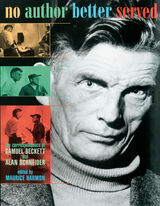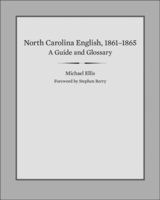3 start with N start with N


For Alan Schneider, directing Endgame, Samuel Beckett lays out the play’s philosophy, then adds: “Don’t mention any of this to your actors!”
He claimed he couldn’t talk about his work, but Beckett proves remarkably forthcoming in these pages, which document the thirty-year working relationship between the playwright and his principal producer in the United States. The correspondence between Beckett and Schneider offers an unparalleled picture of the art and craft of theater in the hands of two masters. It is also an endlessly enlightening look into the playwright’s ideas and methods, his remarks a virtual crib sheet for his brilliant, eccentric plays.
Alan Schneider premiered five of Beckett’s plays in the United States, including Waiting for Godot, Krapp’s Last Tape, and Endgame, and directed a number of revivals. Preparing for each new production, the two wrote extensive letters—about intended tone, conception of characters, irony and verbal echoes, staging details for scenes, delivery of individual lines. From such details a remarkable sense of the playwright’s vision emerges, as well as a feel for the director’s task. Of Godot, Beckett wrote to Schneider, “I feel my monster is in safe keeping.” His confidence in the director, and Schneider’s persistent probing for a surer understanding of each play, have produced a marvelous resource: a detailed map of Beckett’s work in conception and in production.
The correspondence starts in December 1955, shortly after their first meeting, and continues to Schneider’s accidental death in March 1984 (when crossing a street to mail a letter to Beckett). The 500 letters capture the world of theater as well as the personalities of their authors. Maurice Harmon’s thorough notes provide a helpful guide to people and events mentioned throughout.

The core of the book is an alphabetically arranged glossary of words and expressions characteristic of mid–nineteenth century North Carolina, each containing excerpts from the letters themselves to illustrate meaning and usage. While the majority of the writers were Confederate soldiers and their family members, the collection also includes letters from slaves, former slaves, and African Americans from North Carolina serving in the Union Army. The soldiers’ letters rarely contain details about battles, except to list the names of relatives or neighbors among the killed or wounded. After a battle, a soldier might simply write, “the Like of ded men an horses I never saw before” or “we hav lost a heep of men and kild a heep of yankeys.” As Joel Howard of Lincoln County wrote home in June 1863, “I have bin in the ware and Saw the ware and heard tell of the ware till I have got tired of it. if I Could get clear of this ware I neve[r] want to Read of A nother.”
Food is perhaps the most common topic, followed by illness. Numerous terms relate to farming, clothing, religion, and the effects of the war itself, as well as entries for expressions that have long since disappeared from American English: in the gants, on the goose, and up the spout.
In addition to the glossary, Ellis offers an extensive overview of North Carolina English of the period, delves into the social background of the letter writers, and provides invaluable guidance to the ways in which Civil War letters should be read. A unique window into a largely neglected corner of our extraordinarily rich and regionally distinct language, this volume will prove an indispensable reference for scholars and students seeking to reconstruct the world of the common Civil War soldier.
READERS
Browse our collection.
PUBLISHERS
See BiblioVault's publisher services.
STUDENT SERVICES
Files for college accessibility offices.
UChicago Accessibility Resources
home | accessibility | search | about | contact us
BiblioVault ® 2001 - 2024
The University of Chicago Press









